Filter by
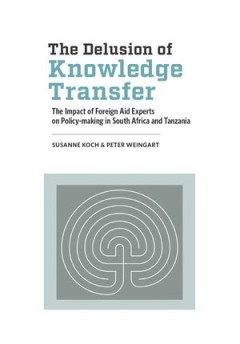
The Delusion of Knowledge Transfer: The Impact of Foreign Aid Experts on Poli…
With the rise of the ‘knowledge for development’ paradigm, expert advice has become a prime instrument of foreign aid. At the same time, it has been object of repeated criticism: the chronic failure of ‘technical assistance’ – a notion under which advice is commonly subsumed – has been documented in a host of studies. Nonetheless, international organisations continue to send advisor…
- Edition
- -
- ISBN/ISSN
- 9781928331391
- Collation
- -
- Series Title
- -
- Call Number
- 320.17 KOC d
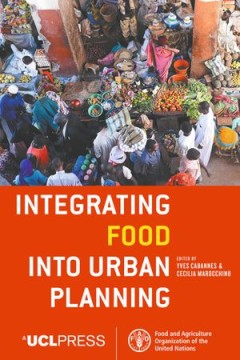
Integrating Food into Urban Planning
The integration of food into urban planning is a crucial and emerging topic. Urban planners, alongside the local and regional authorities that have traditionally been less engaged in food-related issues, are now asked to take a central and active part in understanding how food is produced, processed, packaged, transported, marketed, consumed, disposed of and recycled in our cities. While there …
- Edition
- -
- ISBN/ISSN
- 9781787353763
- Collation
- -
- Series Title
- -
- Call Number
- 320.17 INT i
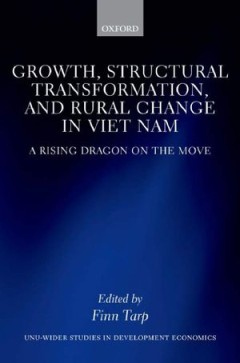
Growth, Structural Transformation, and Rural Change in Viet Nam: a Rising Dra…
Many developing countries—Viet Nam included—continue to struggle to raise incomes per capita. A common feature of the growth and development process is a fundamental change in the pattern of economic activity, as households reallocate labour from traditional agriculture to more productive forms of agriculture and modern industrial and service sectors. Broad structural transformation and wid…
- Edition
- -
- ISBN/ISSN
- 9780198796961
- Collation
- -
- Series Title
- -
- Call Number
- 320.17 GRO g
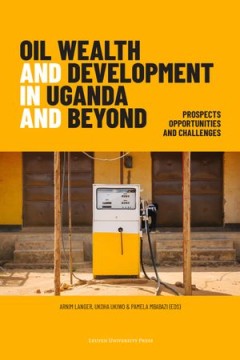
Oil Wealth and Development in Uganda and Beyond: Prospects, Opportunities, an…
Large quantities of oil were discovered in the Albertine Rift Valley in Western Uganda in 2006. The sound management of these oil resources and revenues is undoubtedly one of the key public policy challenges for Uganda as it is for other African countries with large oil and/or gas endowments. With oil expected to start flowing in 2021, the current book analyses how this East African country is …
- Edition
- -
- ISBN/ISSN
- 9789461663092
- Collation
- -
- Series Title
- -
- Call Number
- -
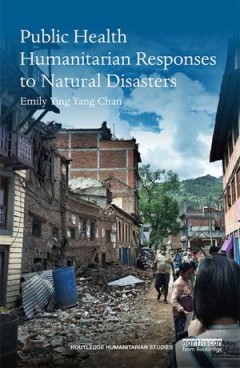
Public Health Humanitarian Responses to Natural Disasters
The pressure of climate change, environmental degradation, and urbanisation, as well as the widening of socio- economic disparities have rendered the global population increasingly vulnerable to the impact of natural disasters. With a primary focus on medical and public health humanitarian response to disasters, Public Health Humanitarian Responses to Natural Disasters provides a timely critica…
- Edition
- -
- ISBN/ISSN
- 1317357442
- Collation
- -
- Series Title
- -
- Call Number
- -
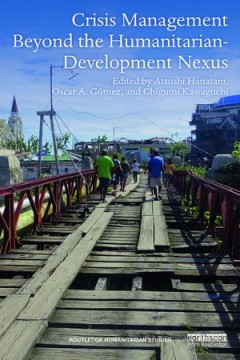
Crisis Management Beyond the Humanitarian-Development Nexus
In addressing humanitarian crises, the international community has long understood the need to extend beyond providing immediate relief, and to engage with long-term recovery activities and the prevention of similar crises in the future. However, this continuum from short-term relief to rehabilitation and development has often proved difficult to achieve. This book aims to shed light on the con…
- Edition
- -
- ISBN/ISSN
- 1351006819
- Collation
- -
- Series Title
- -
- Call Number
- -
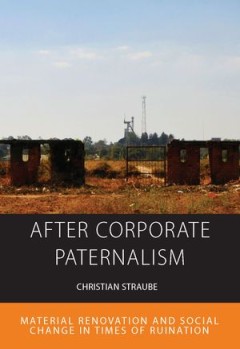
After Corporate Paternalism: Material Renovation and Social Change in the Tim…
In this ethnographic study of post-paternalist ruination and renovation, Christian Straube explores social change at the intersection of material decay and social disconnection in the former mine township Mpatamatu of Luanshya, one of the oldest mining towns on the Zambian Copperbelt. Touching on topics including industrial history, colonial town planning, social control and materiality, gender…
- Edition
- -
- ISBN/ISSN
- 9781800731332
- Collation
- -
- Series Title
- -
- Call Number
- 301 STR a
 Computer Science, Information & General Works
Computer Science, Information & General Works  Philosophy & Psychology
Philosophy & Psychology  Religion
Religion  Social Sciences
Social Sciences  Language
Language  Pure Science
Pure Science  Applied Sciences
Applied Sciences  Art & Recreation
Art & Recreation  Literature
Literature  History & Geography
History & Geography